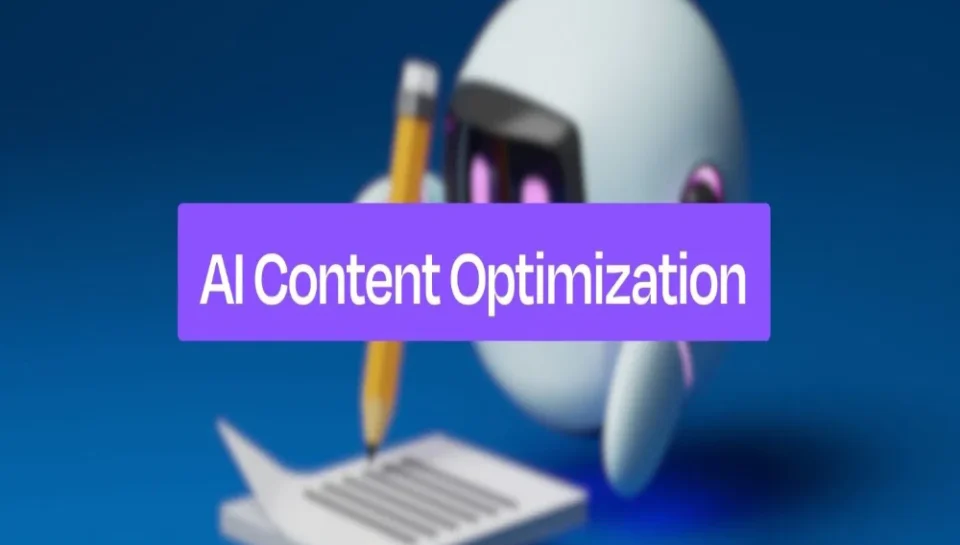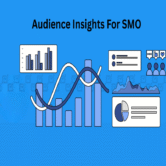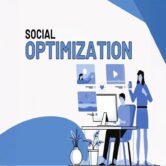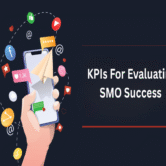
Introduction to AI-driven content optimization
Introduction
AI-driven content optimization is revolutionizing how digital marketers create, distribute, and enhance content. Powered by artificial intelligence, this approach enables data-informed decisions that maximize engagement, visibility, and conversions. Unlike traditional methods, AI tools analyze massive volumes of data in real time to provide actionable insights, automate routine tasks, and personalize content for targeted audiences. As competition grows and content saturation increases across digital platforms, AI empowers marketers to fine-tune every aspect of their content strategy—ensuring relevance, efficiency, and performance. This innovation marks a shift from intuition-based marketing to precision-driven content excellence.
Understanding the role of AI in content strategy
AI plays a foundational role in shaping content strategies by evaluating user behavior, search trends, and performance data. Marketers use AI tools to uncover content gaps, identify trending topics, and assess competitors’ approaches. This allows for a strategic content roadmap that aligns with audience intent and business goals. AI also supports audience segmentation, helping marketers deliver the right message to the right person at the right time. By learning from past performance, AI tools continuously refine strategies for better future outcomes.
AI-powered keyword research and topic discovery
One of the key areas AI enhances is keyword research. Platforms like SEMrush, Surfer SEO, and Clearscope use AI to identify high-potential keywords based on relevance, competition, and search volume. These tools go beyond simple keyword suggestions to deliver related phrases, intent-based queries, and content gaps. AI also assists in generating blog topics by analyzing trending searches and aligning them with brand voice. This accelerates the research process and ensures that content is aligned with current user demands.
Content creation with AI-assisted writing tools
AI-powered writing tools such as ChatGPT, Jasper, and Copy.ai are transforming content creation by generating outlines, drafting articles, and enhancing grammar and tone. These tools reduce the time spent on first drafts and help maintain consistency across content assets. While AI cannot fully replace human creativity, it supports writers by offering suggestions, summarizing data, and adapting content for different platforms. The collaboration between human writers and AI enhances productivity and maintains quality.
Content personalization using AI insights
AI enables personalized content delivery by analyzing user behavior, preferences, and history. With machine learning algorithms, marketers can dynamically adapt website content, emails, and recommendations to individual users. Personalization engines like Dynamic Yield or Adobe Target use AI to tailor headlines, calls-to-action, and visual elements for different audience segments. This level of customization increases engagement, reduces bounce rates, and drives conversions by making content more relevant to each visitor.
Optimizing visual content through AI tools
AI extends beyond text and plays a role in visual content optimization. Tools such as Canva’s Magic Design and Adobe Sensei suggest layouts, color palettes, and visual elements that match user preferences and branding guidelines. AI also assists in optimizing images and videos for SEO by generating alt text, captions, and transcripts. Furthermore, platforms like Lumen5 or Pictory convert blog posts into engaging video formats—expanding the reach and versatility of content.
Enhancing SEO performance with AI-driven insights
AI tools help improve search engine performance by analyzing keyword density, meta descriptions, content structure, and backlink profiles. Platforms like MarketMuse and Frase evaluate on-page SEO elements and offer suggestions to improve rankings. These insights ensure that content meets algorithmic preferences and user expectations. AI can also monitor algorithm updates and quickly adapt content strategies to maintain or improve search visibility over time.
A/B testing and performance prediction
AI streamlines A/B testing by predicting which content variations are likely to perform better before they go live. It analyzes user behavior patterns, device preferences, and past performance data to recommend optimal headlines, imagery, and placement. Predictive analytics tools forecast which combinations are likely to generate the best results, reducing guesswork and shortening the testing cycle. This predictive power helps marketers achieve better ROI from content faster.
Automating content distribution and scheduling
AI tools also automate the publishing and promotion process. Platforms like Buffer, CoSchedule, and Hootsuite use AI to determine the best times to post content across channels for maximum visibility and engagement. AI automates reposting strategies and content recycling, ensuring consistent presence without overloading teams. This frees up resources while ensuring that high-quality content reaches the right audience at the right moment.
Real-time performance monitoring and optimization
AI-driven analytics tools monitor content performance in real time, offering insights into traffic sources, engagement levels, and conversion paths. Tools like Google Analytics 4, HubSpot, and Hotjar leverage AI to identify anomalies, suggest optimizations, and predict user behavior. These continuous feedback loops allow marketers to tweak headlines, CTAs, and formats instantly—ensuring that content remains effective and aligned with objectives even after it goes live.
Conclusion
AI-driven content optimization is transforming the digital marketing landscape by making content smarter, faster, and more responsive to user needs. From idea generation and keyword targeting to distribution and performance analysis, AI enhances every phase of the content lifecycle. It empowers marketers to make data-driven decisions, deliver personalized experiences, and continuously refine their strategies. While human creativity remains essential, the integration of AI brings efficiency, scalability, and precision to content marketing. Embracing AI not only improves content performance but also provides a competitive edge in today’s fast-paced digital environment.
Hashtags
#AIcontentoptimization #digitalmarketing #contentstrategy #aiseo #contentpersonalization #machinelearning #marketingautomation #aicontentcreation #searchengineoptimization #keywordresearch #contentmarketing #personalizedcontent #digitalintelligence #predictivemarketing #realtimemarketing #contentdistribution #aibasedtools #contentanalytics #smartmarketing #marketingtechnology #visualoptimization #automatedcontent #contentperformance #aiblogtools #aiindigitalmarketing





